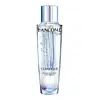What's inside
What's inside
 Key Ingredients
Key Ingredients

 Benefits
Benefits

 Concerns
Concerns

 Ingredients Side-by-side
Ingredients Side-by-side

Water
Skin ConditioningAlcohol
AntimicrobialGlycerin
HumectantAngelica Acutiloba Root Extract
Skin ConditioningCoix Lacryma-Jobi Ma-Yuen Seed Extract
Skin ConditioningDipotassium Glycyrrhizate
HumectantHamamelis Virginiana Extract
AntiseborrhoeicPseudostellaria Heterophylla Extract
Tocopheryl Acetate
AntioxidantTriticum Vulgare Germ Oil
EmollientCitric Acid
BufferingDi-C12-15 Pareth-8 Phosphate
CleansingEthylhexyl Methoxycinnamate
UV AbsorberPolysorbate 80
EmulsifyingSodium Citrate
BufferingSorbitan Sesquioleate
EmulsifyingTriethylhexanoin
MaskingEthylparaben
PreservativeMethylparaben
PreservativePropylparaben
PreservativeParfum
MaskingWater, Alcohol, Glycerin, Angelica Acutiloba Root Extract, Coix Lacryma-Jobi Ma-Yuen Seed Extract, Dipotassium Glycyrrhizate, Hamamelis Virginiana Extract, Pseudostellaria Heterophylla Extract, Tocopheryl Acetate, Triticum Vulgare Germ Oil, Citric Acid, Di-C12-15 Pareth-8 Phosphate, Ethylhexyl Methoxycinnamate, Polysorbate 80, Sodium Citrate, Sorbitan Sesquioleate, Triethylhexanoin, Ethylparaben, Methylparaben, Propylparaben, Parfum
Water
Skin ConditioningAlcohol
AntimicrobialGlycolic Acid
BufferingButylene Glycol
HumectantIsononyl Isononanoate
EmollientDipropylene Glycol
HumectantSodium Hydroxide
BufferingAnanas Sativus Fruit Extract
Skin ConditioningAscorbyl Glucoside
AntioxidantTocopherol
AntioxidantFaex Extract
Skin ConditioningFagus Sylvatica Bud Extract
TonicArginine
MaskingPEG-32
HumectantTrisodium Ethylenediamine Disuccinate
Helianthus Annuus Seed Oil
EmollientSalicylic Acid
MaskingPentylene Glycol
Skin ConditioningBenzoic Acid
MaskingPropanediol
SolventCaprylyl Glycol
EmollientPapain
Skin ConditioningSorbic Acid
PreservativeRosa Damascena Flower Water
MaskingRosa Damascena Flower Oil
MaskingRosmarinus Officinalis Extract
AntimicrobialRose Extract
Skin ConditioningVitis Vinifera Seed Oil
EmollientCitric Acid
BufferingWater, Alcohol, Glycolic Acid, Butylene Glycol, Isononyl Isononanoate, Dipropylene Glycol, Sodium Hydroxide, Ananas Sativus Fruit Extract, Ascorbyl Glucoside, Tocopherol, Faex Extract, Fagus Sylvatica Bud Extract, Arginine, PEG-32, Trisodium Ethylenediamine Disuccinate, Helianthus Annuus Seed Oil, Salicylic Acid, Pentylene Glycol, Benzoic Acid, Propanediol, Caprylyl Glycol, Papain, Sorbic Acid, Rosa Damascena Flower Water, Rosa Damascena Flower Oil, Rosmarinus Officinalis Extract, Rose Extract, Vitis Vinifera Seed Oil, Citric Acid
 Reviews
Reviews

Ingredients Explained
These ingredients are found in both products.
Ingredients higher up in an ingredient list are typically present in a larger amount.
Alcohol comes in many different forms. Different types of alcohol will have different effects on skin. This ingredient is usually an astringent alcohol.
These alcohols are drying on the skin. They may strip away your skin's natural oils and even damage your skin barrier. Astringent alcohols may also irritate skin.
Other types of astringent alcohols include:
According to the National Rosacea Society based in the US, you should be mindful of products with these alcohols in the top half of ingredients.
Any type of sanitizing product will have high amounts of alcohol to help kill bacteria and viruses.
Fatty alcohols come from plant oils such as coconut oil. These can help hydrate the skin and are non-irritating. Some fatty alcohols include cetyl and stearyl alcohol.
Learn more about AlcoholCitric Acid is an alpha hydroxy acid (AHA) naturally found in citrus fruits like oranges, lemons, and limes.
Like other AHAs, citric acid can exfoliate skin by breaking down the bonds that hold dead skin cells together. This helps reveal smoother and brighter skin underneath.
However, this exfoliating effect only happens at high concentrations (20%) which can be hard to find in cosmetic products.
Due to this, citric acid is usually included in small amounts as a pH adjuster. This helps keep products slightly more acidic and compatible with skin's natural pH.
In skincare formulas, citric acid can:
While it can provide some skin benefits, research shows lactic acid and glycolic acid are generally more effective and less irritating exfoliants.
Most citric acid used in skincare today is made by fermenting sugars (usually from molasses). This synthetic version is identical to the natural citrus form but easier to stabilize and use in formulations.
Read more about some other popular AHA's here:
Learn more about Citric AcidWater. It's the most common cosmetic ingredient of all. You'll usually see it at the top of ingredient lists, meaning that it makes up the largest part of the product.
So why is it so popular? Water most often acts as a solvent - this means that it helps dissolve other ingredients into the formulation.
You'll also recognize water as that liquid we all need to stay alive. If you see this, drink a glass of water. Stay hydrated!
Learn more about Water